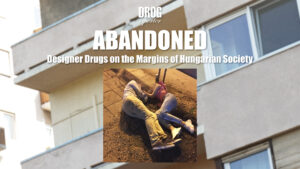Criminalisation of drug possession does not help to decrease illicit drug consumption. Instead, it distracts the attention and energy of the police from the real originators of the problem: mass producers and major and minor drug dealers – write the signatories of the letter of support, including former Polish President Aleksander Kwasniewski, for liberalizing drug policy in Poland.
Signatories of the open letter urge the government to advance proceedings on amendments to the drug policy bill that has now reached the parliament. If accepted, a prosecutor would be entitled to discontinue legal proceedings against a person suspected of possessing a minor quantity of an illicit substance for personal use provided that the social harm of the deed is insignificant or the punishment would prove futile.
“Apart from advancing work on the bill, we expect a table of data stating what exactly is meant by minor quantities for each enlisted substance to be added as an annex to the bill,”says Karolina Walęcik of Krytyka Polityczna, the organization which initiated the letter. “Such a solution is a small step which will help focus the efforts of enforcement agencies and the judiciary on real criminals that are drug dealers and traffickers, not on occasional users.”
In September a proposal of what limits could be defined for each illicit substance was announced by the Polish Drug Policy Network, an organization advocating rational drug policy in Poland which brings together experts, therapists and drug users, amongst others.
“The amendment we care about was introduced to the parliament in September but until now the bill hasn't even had its first reading.” says Marek Balicki, a member of Parliament and former minister of health. “The current restrictive law has been binding in Poland for ten years and now it clearly shows that the goals it established have not been met. The time has come to verify those goals.”
Article 62.1 of the current drug law states that possession of any amount of an illicit drug is subject to imprisonment for up to three years. Even though the originators of the bill claim that the law was targeted at drug dealers, statistics show that after the law was introduced the number of arrested and tried dealers has not risen. In the majority of cases, those arrested were occasional users, possessing minimal quantities of marijuana, often less than one gram. According to the Polish think tank the Institute of Public Affairs, the execution of article 62.1 costs the state budget about 80 million Polish Zloty (ca. 20 million Euro) a year at a cost of over 2,500 Zloty (ca. 600 Euro) for each arrested offender. Moreover, the study shows that half of the policemen interviewed admit that the current law is conducive to abuse and is in fact abused. Instead of going after drug dealers and retailers, law enforcement officials choose the much easier option of focusing on people who possess minor amounts of illicit substances, which is an easy way to augment statistics.
In addition, the proposed amendment includes provisions for drug dependence treatment. Experts admit that access to substitution treatment in Poland is still extremely limited. Lack of access to such treatment in the north of the country was subject to criticism by Anand Grover, UN Special Rapporteur for Health.
Experts say that current Polish drug law is costly, infringes human rights and proves unconstitutional as it does not fulfill the constitutional criterion of proportion of punishment to the unlawful act.
List of signatories
- Paweł Althamer – critical artist
- Dr Marek Balicki – psychiatrist, former polish Minister of Health
- Prof. Zygmunt Bauman – sociologist
- Edwin Bendyk – journalist, expert on modern capitalism, public intellectual
- Prof. Agata Bielik-Robson – philosopher, Polish Academy of Science
- Halina Bortnowska – human rights activist, publisher
- Izabela Cywińska – film director, former Minister of Culture
- Artur Domosławski – journalist, writer
- Dr Kinga Dunin – sociologist, publicist, writer
- Janusz Głowacki – writer
- Dr Agnieszka Graff – literature critic, feminist publicist, Warsaw University
- Manuela Gretkowska – writer
- Prof. Jan Tomasz Gross – sociologist, historian, Princeton University
- Prof. Irena Grudzińska-Gross – literary historian, Princeton University
- Agnieszka Holland – film director
- Olga „Kora“ Jackowska – singer, songwriter
- Prof. Maria Janion – literary historian, Polish Academy of Science
- Prof. Małgorzata Kowalska – philosopher, Białystok University
- Dr Sergiusz Kowalski – sociologist
- Prof. Krzysztof Krajewski – legal expert
- Joanna Kos-Krauze – film director
- Krzysztof Krauze – film director
- Roman Kurkiewicz – journalist
- Aleksander Kwaśniewski – former President of Poland
- Borys Lankosz – film director
- Magdalena Łazarkiewicz – film director
- Piotr Najsztub – journalist
- Dr Wojciech Olejniczak – former Minister of Agriculture
- Prof. Wiktor Osiatyński – legal expert, human rights activist
- Joanna Rajkowska – critical artist
- Anda Rottenberg – critic of arts
- Kamil Sipowicz – poet, philosopher
- Prof. Paweł Śpiewak – sociologist, Warsaw University
- Prof. Magdalena Środa – philosopher, Warsaw University
- Kazimiera Szczuka – literary critic, journalist
- Małgorzata Szumowska – film director
- Olga Tokarczuk – writer
- Dr Ewa Woydyłło – psychologist
- Jacek Żakowski – publicist
14 December 2010, Warsaw
Source: Krytyka Polityczna




